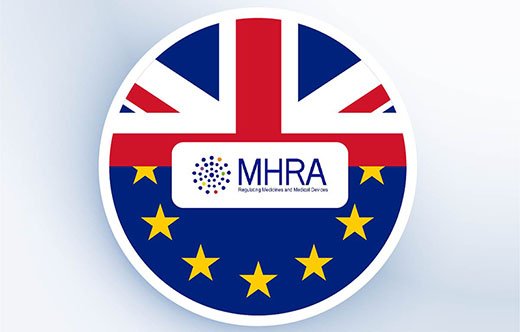The new article addresses the aspects related to special types of products, as well as to the online registration system to be used and the approach to be applied when renewing the registration.

Table of Contents
The Medicines and Healthcare products Regulatory Agency (MHRA), the UK regulating authority in the sphere of medical devices, has published a revised guidance dedicated to the processes and procedures for medical device registration. The document provides an overview of the applicable regulatory requirements, as well as additional clarifications and recommendations to be taken into consideration by medical device manufacturers and other parties involved in order to ensure compliance thereto. At the same time, provisions of the guidance are non-binding in their legal nature, nor are intended to introduce new rules or impose new obligations; and could be subject to changes, should such changes be reasonably necessary to reflect corresponding amendments to the underlying legislation.
Coronavirus Test Device Approval (CTDA)
The scope of the guidance covers, inter alia, the matters related to the regulatory status of the products intended to be used in the context of the Coronavirus Disease 2019 (COVID-19) caused by the virus SARS-CoV-2 or the “novel coronavirus”. In accordance with the applicable regulations, proper validation against the relevant minimum performance standards is a prerequisite for placing such products on the market. Consequently, such products would be subject to a Coronavirus Test Device Approvals desktop review; while anyone interested in placing such products on the market should apply for and obtain the appropriate approval. Furthermore, the authority additionally emphasizes that without the aforementioned Coronavirus Test Device Approval, an application for registration of a COVID-related medical device will not be accepted. However, there are certain exemptions applicable – in this case, special rules will apply. In this respect, the authority refers to a separate guidance document dedicated to medical devices (including diagnostic ones) to be used in the context of a COVID-19 outbreak.
Device Online Registration System (DORS)
The document also provides additional clarifications regarding the use of the Device Online Registration System (DORS) where an applicant should create an account before moving forward with the registration. Once an interested party has applied for an account, the authority will review the request and confirm whether the request has been accepted and processed.
In this respect, the authority additionally emphasizes the following:
- The applicant will not be considered registered unless all the details of a medical device in question have been duly provided by the applicant, and the appropriate confirmation is issued by the authority.
- All the information submitted in the course of registration should be accurate and up to date.
- The authority reserves the right to request additional technical documentation, should it be necessary to demonstrate that the product subject to registration complies with any and all regulatory requirements that apply.
- The mere registration of a medical device with the authority should not be construed as any sort of accreditation or endorsement. Hence, the registration holder is prohibited from using any visual elements or statements referring to or creating an impression of the product being approved or endorsed by the authority. This restriction applies to any documentation and labeling related to a medical device and accompanying it when placed on the market.
- In case the applicant is a UK Responsible Person or a Northern Ireland-based Authorised Representative, it will be also necessary to provide the details of the original medical device manufacturer.
Registration Review
According to the guidance, an existing medical device registration should be subject to a regular review to be carried out by the registration holder in order to ensure the information it contains is up to date. Furthermore, any changes to the registration would trigger the relevant notification requirements providing that the registration holder should duly notify the MHRA about the changes to the product placed on the market or any material aspect associated thereto.
Moreover, the authority has already developed a renewal registration process that provides reminders to be issued to the registration holders, informing them about the necessity to ensure the information included in a medical device registration is up to date. As set forth by the applicable regulations, the first renewal date is 1 year after the account request was completed by MHRA, and then at least every 2 years, with the automated notifications issued 3, 2, and then 1 month before the renewal date. The appropriate application should be submitted by a registration holder starting 3 months before the date of renewal without any additional fee payable.
Should the registration holder fail to submit the renewal application within the abovementioned timeframes, the registration application will be suspended and removed from the database, preventing the registration holder from adding new devices.
The authority also encourages the registration holders to review carefully the entity details, as well as any and all products covered by the registration in order to ensure the relevant information added is correct and up to date. Procedural actions to be completed by a registration holder could include, inter alia, uploading new documents confirming compliance with the applicable regulatory requirements, adding new or removing existing medical devices, etc. The MHRA additionally emphasizes the importance of indicating the UDI-DIs for all the products since it is vitally important for monitoring purposes.
Any changes to the entity or addition of a new medical device would require a separate submission which is subject to the special fee to be paid. Should the name or address of the entity be subject to changes, the updated details should be provided before applying for renewal.
Should no changes be required to an existing registration, its renewal could be performed without an additional fee to be paid.
In summary, the present MHRA guidance describes in detail the regulatory status of COVID-related products. The document also provides additional clarifications regarding the way a medical device registration should be subject to review and renewal in order to ensure the accuracy and relevance of the information contained therein.
How Can RegDesk Help?
RegDesk is a holistic Regulatory Information Management System that provides medical device and pharma companies with regulatory intelligence for over 120 markets worldwide. It can help you prepare and publish global applications, manage standards, run change assessments, and obtain real-time alerts on regulatory changes through a centralized platform. Our clients also have access to our network of over 4000 compliance experts worldwide to obtain verification on critical questions. Global expansion has never been this simple.


